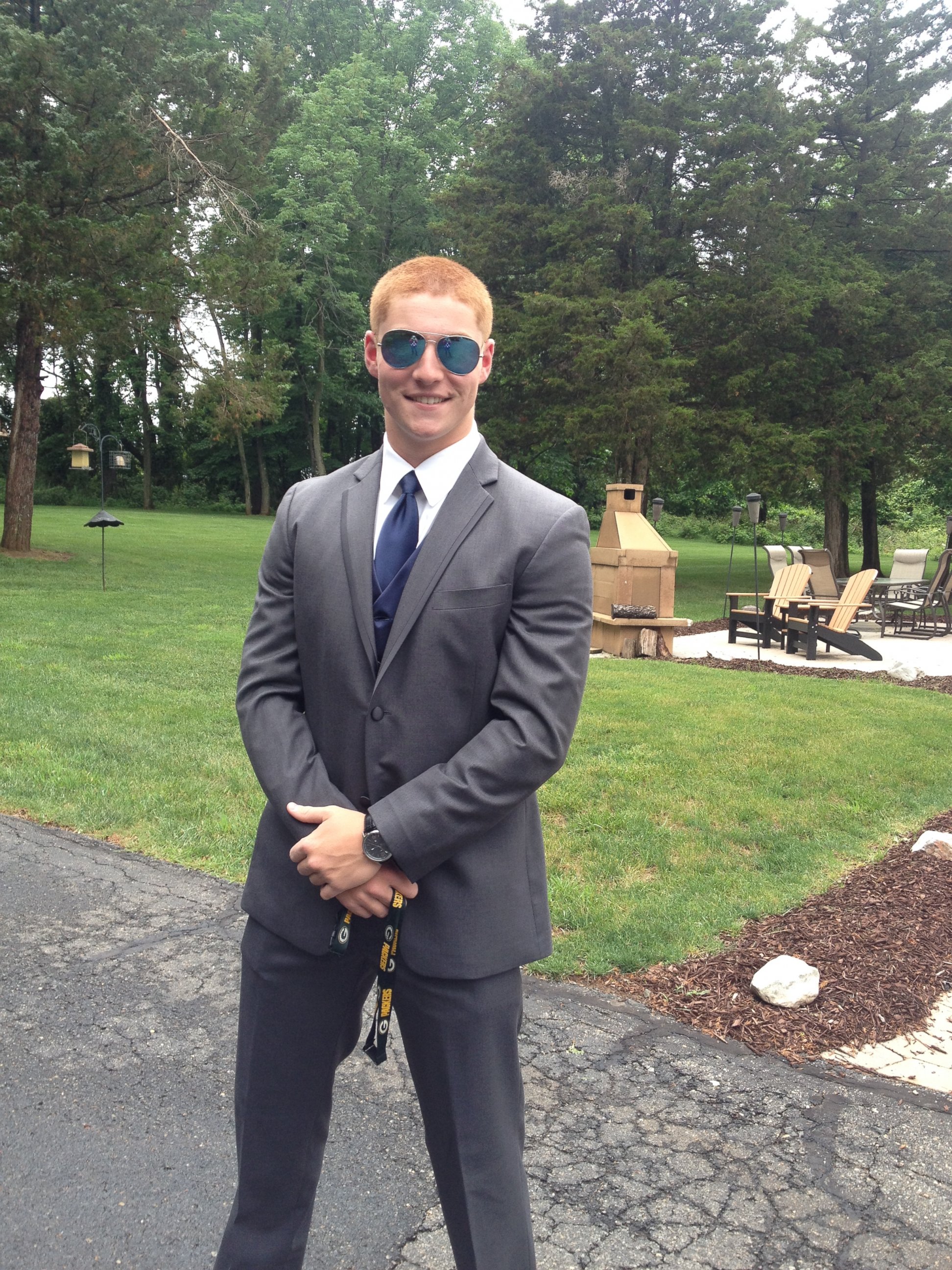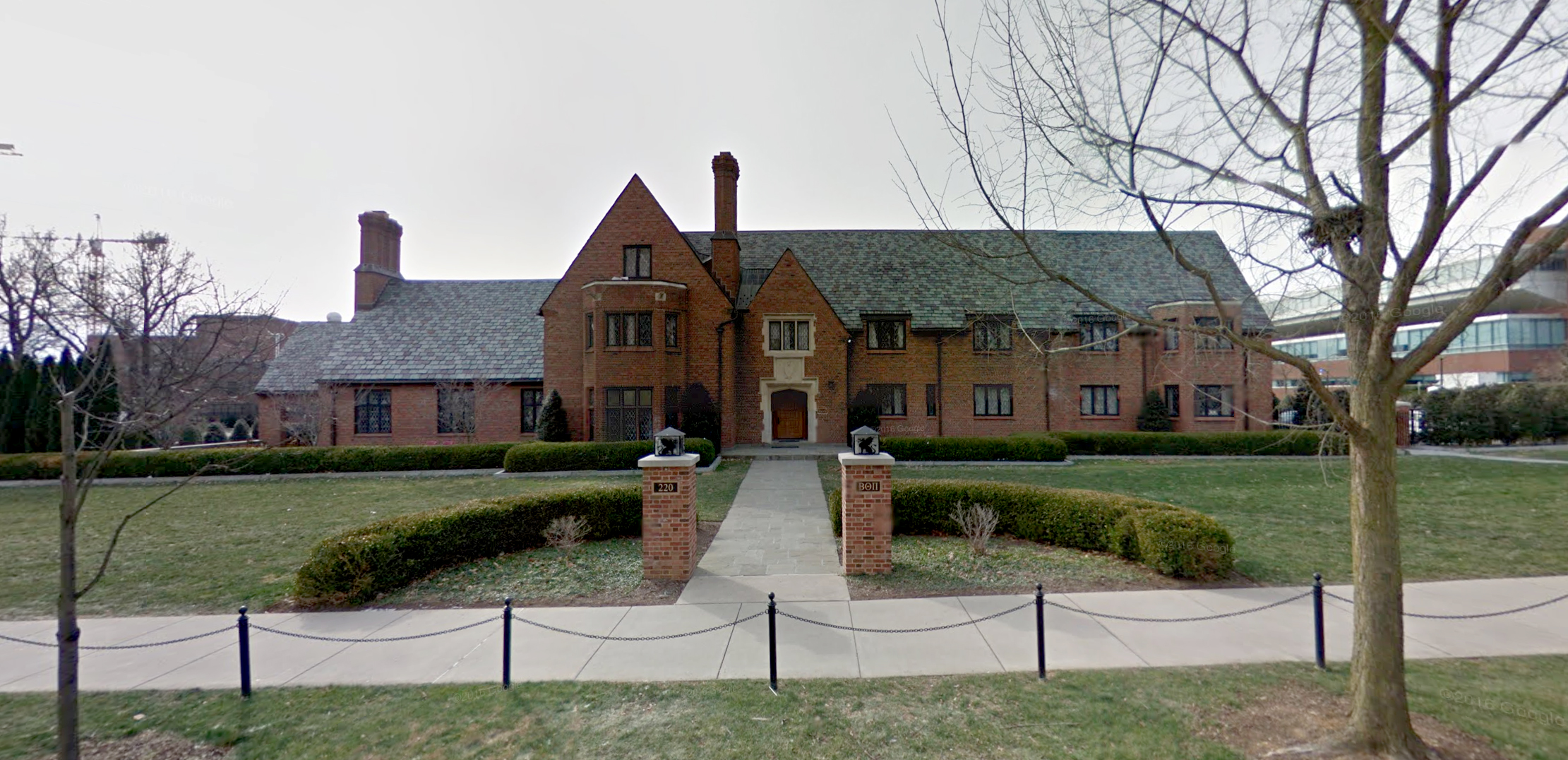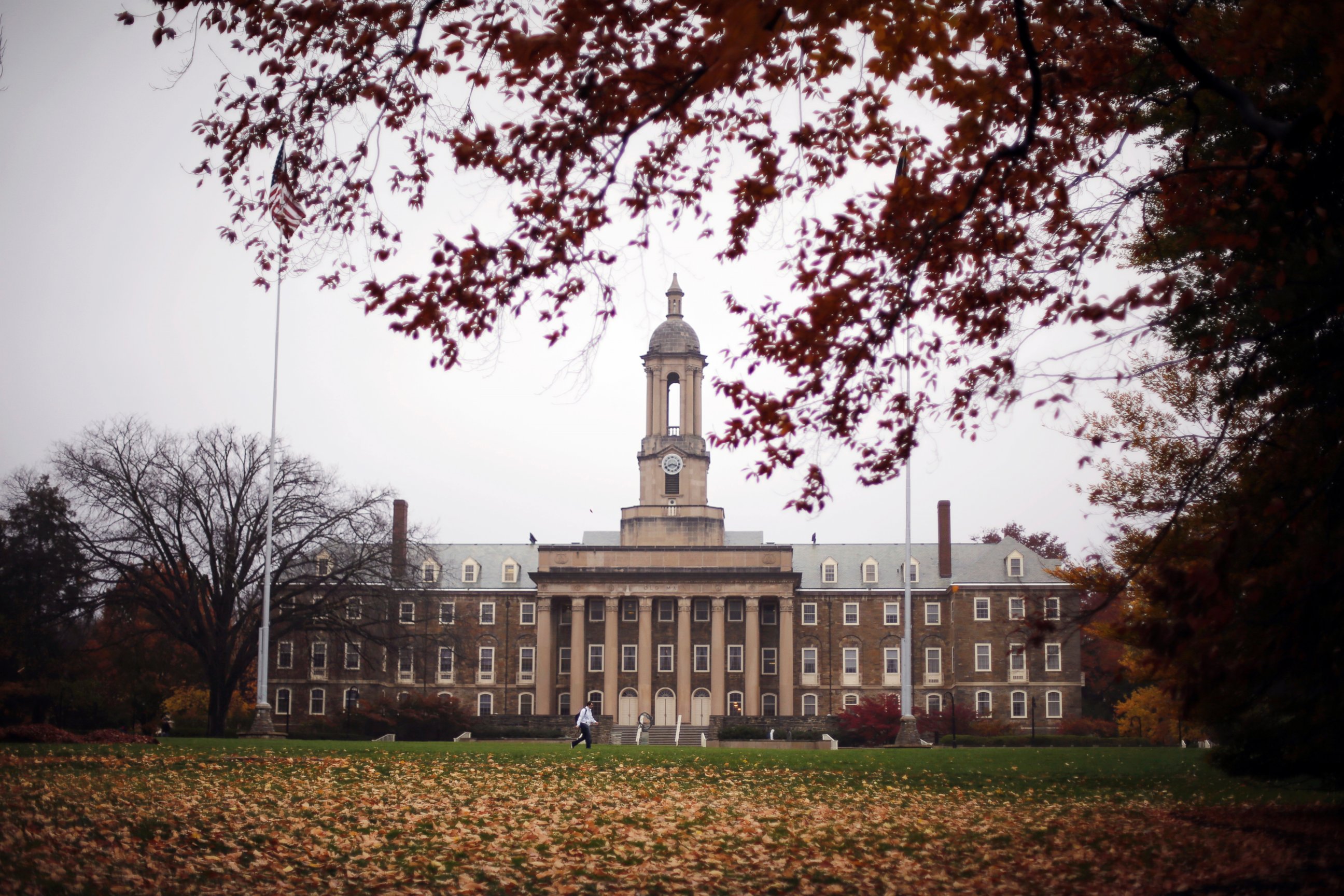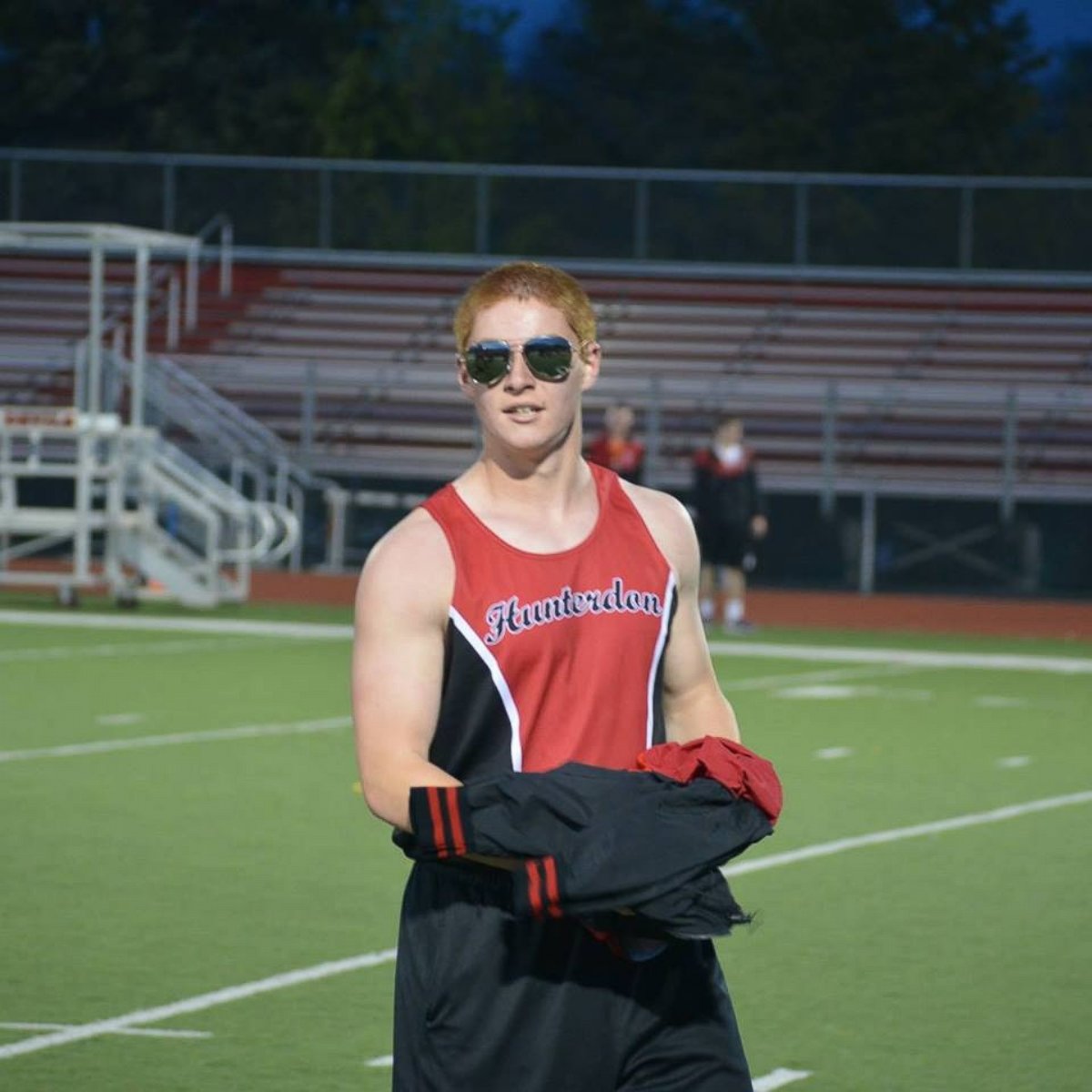Penn State hazing case: 'Excruciatingly difficult' for Piazzas to hear details in court, attorney says
Timothy Piazza, 19, died in February after a fall at the Beta Theta Pi house.
— -- It is "excruciatingly difficult" for the family of Penn State pledge Timothy Piazza, who died after a fall at a fraternity house earlier this year, to sit in court, listening to the alleged details of fraternity members' actions after their son was hurt, said the Piazza family attorney.
"In Jim Piazza’s words, 'There wasn’t a moment today that I couldn’t stop thinking about my son Tim,'" Tom Kline, attorney for the Piazza family, told ABC News on Monday. "It is excruciatingly difficult for the Piazzas to sit and listen to the callous and reckless misconduct of individuals who cost them their son and cost their son his life.
But they are determined steadfastly and resolutely to go through with this process so that justice is done."
Piazza, a 19-year-old sophomore and pledge at Beta Theta Pi, died on Feb. 4 after he fell down the stairs during a night of drinking for a pledge ceremony at the house on the night of Feb. 2. In text messages, fraternity members refer to the pledge ceremony drinking as an "obstacle course." Fraternity members did not call 911 until the morning of Feb. 3, about 12 hours after Piazza's fall, according to a report on the grand jury's investigation. Piazza's death "was the direct result of traumatic brain injuries," according to the forensic pathologist.

Prosecutors claim the former fraternity brothers at Beta Theta Pi waited to get Piazza help in an attempt to cover up their drinking and "coordinate a story."
Eighteen Penn State students are facing charges: eight for involuntary manslaughter, aggravated assault, reckless endangerment, and hazing, among other charges; four for reckless endangerment and hazing, among other charges; and six for evidence tampering. The Beta Theta Pi fraternity -- which has since been barred from Penn State -- is facing charges including involuntary manslaughter and hazing. No defendants have entered pleas at this time.
At a preliminary hearing, which began in June and continued Monday and today, prosecutors revealed texts and internet searches allegedly sent and made by some at the fraternity house. After the hearing, a judge will decide if there is enough evidence to go to trial.
One brother allegedly texted his girlfriend "drink hazing can send me to jail," and "I don't want to go to jail for this."
"I think we are f-----," the ex-fraternity brother allegedly said.

Someone allegedly texted, "When they see the video footage of the obstacle course we will be done."
One then-fraternity member allegedly asked, "What times did they take tape of?" and another member replied, "Nah, they took tapes from 7 to 9:30am."
"F--- yes," the first fraternity brother responded. "We should be good," the second fraternity brother said.
After Piazza's injury, one of the fraternity members allegedly texted another, "Make sure the pledges clean the basement and get rid of any evidence of alcohol."
Another text said, "Make sure the pledges keep quiet about last night and this situation."
Prosecutors also said one of the young men did an internet search for: "How would 9 drinks in an hour affect a 200 pound guy."
Frank Fina, an attorney for the former fraternity president, on Monday questioned a detective who said it is unclear how much alcohol Piazza had during the "obstacle course" hazing ritual as opposed to the separate party in the basement.
Fina asked if it's fair to say the pledges could have left at any time, and the detective said yes.
Fina asked the detective if anyone physically threatened any pledges to drink, or if anyone threatened to harm pledges, and the detective said not that he was aware of.
Kline, however, told ABC News, "The concept that this was quote 'voluntary drinking' conjures up a social event where people all gather together and have a cup of wine -- this was forced alcohol poisoning."
"This was an individual among other individuals who were told you cannot get into this organization unless you do certain things, and here’s what you must do," Kline said. "So there is under the law of Pennsylvania, as in most states, a forcible compulsion. A forcible act against another human being."
Fina also said in court Monday that two Penn State-hired "social checkers," provided by private security company St. Moritz Security for the Infrafraternity Council, attended the fraternity party that night. Prosecutors have suggested that fraternity members somewhat cleaned up before the social checkers' arrival. The detective testified there was no evidence showing that anything was cleaned up, citing alcohol boxes in the lobby when the security guards walked in.

The detective said the social checkers went to the party nine minutes before Piazza's fall, and were inside the house for two to three minutes. The detective said it's probable that Piazza and the social checkers were in the basement at the same time, when Piazza was visibly very drunk. Video reportedly shows the social checkers leaving the party shortly before the fall.
The detective on the stand admitted that the social checkers were not interviewed and the detective said he does not know if the social checkers filed any complaint. St. Moritz Security declined to comment.
Rocco Cipparone, an attorney for one of the former fraternity members charged, told ABC News Monday that the security guards are trained and "know what they are looking for. And if they don't see a problem," a college student, like his client, should not be expected to see a problem.
"It's a horrible tragedy. My client's empathies go out to the Piazza family, so do mine. But it was not a crime, at least as to" his client, Cipparone said. "These are young men ... probably none of them had the intention, of course, to harm Timothy Piazza, and they're trying to figure it out. Hindsight is 20/20. We're looking at a video with the hindsight of knowing, sadly, Mr. Piazza died. But the defendants were not knowing that when they're observing the situation. These are normal 19, 20, 21-year-old guys who are just experiencing something live -- not in the hindsight we are looking at it in this courtroom."
Ted Simon, an attorney for another former fraternity member charged, on Monday called Piazza's death an "awful, awful tragedy," adding, "but not every tragedy... should result in a criminal prosecution."
Simon said, with his client, "the charges are really unfounded, unwarranted and unjustified. I fully expect in the end that will be clearly demonstrated."
But Kline said, "There are individuals who actually plotted this alcohol poisoning. There are individuals who failed to assist Tim Piazza, there are people who looked the other way and there are people that covered it up. While there is crossover among some of them who planned, executed, and covered up the events that led to Tim Piazza’s death - each and every one of them individually bears some responsibility."

Penn State has announced proposals for new safety reforms, including: having university staff members monitor social events; the university taking control of the fraternity and sorority misconduct and adjudication process; and permanent revocation of university recognition for any chapter involved in "hazing that involves alcohol, physical abuse, or any behavior that puts a student’s mental or physical health at risk."
Penn State President Eric Barron said, "There are other measures being discussed and will be instituted over time -- all with a focus on prevention, monitoring and enforcement. These measures augment a series of actions taken earlier this year, which are being made permanent."
Barron added, "I am resolved to turn the pain and anguish radiating through our entire community into decisive action and reform, concentrating on the safety and well-being of students at Penn State."
Penn State's Interfraternity Council said, "We agree that added social restrictions, education, transparency and professional staff support are critical. We have tried to remain committed to being an active part of the solution within our community. We stand firm on our belief that when students are involved in collaborating with the university in monitoring and accountability, a greater impact is made. For that reason, we will continue to push for a partnership between student leaders and the university."




